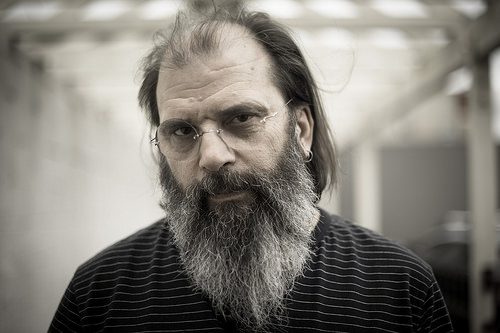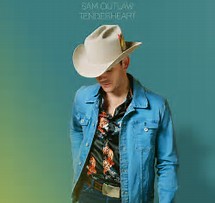Ahead of his new album So You Wannabe an Outlaw, Steve Earle has not been afraid to speak his mind. IN a recent interview with The Guardian, Earle calls out, among other things, the current state of pop country and says that the mainstream is nothing but “hip-hop for people who are afraid of black people.” He also says that “the best stuff coming out of Nashville is all by women except for Chris Stapleton.” I don’t want to focus too much on this interview since that’s not originally what this article was meant to be about, but it adds new light to it and strengthens the point I was originally going to make here–Steve Earle is not afraid to be honest and share his opinion. However, the thing is, although it’s not overly common, bashing pop country is certainly not uncommon, and we’ve seen our fair share of artists do so over the past several years. The thing that makes Earle’s recent statements different comes in light of another interview, which before today had been the main focus of this piece.
IN another interview in Canada, with The Globe and Mail, when asked about Canadian songwriters, Steve Earle mentioned Colter Wall, citing him as “the best singer-songwriter I’ve come across in years.” Here’s where the interview takes an interesting turn.
I haven’t heard his new album yet, but I heard him [Colter] described as “bad Richard Buckner.”
Richard Buckner sucks. Richard Buckner is the most overrated songwriter in the history of songwriting ever. Girls liked him, because he stared at his feet. He’s a neanderthal. I know Buckner.
I’m quite fond of Buckner’s music. Particularly, The Hill (2000).
He can’t write his way out of a wet paper bag. Richard Buckner was nothing but a painfully alternative hipster’s darling. But I hate a lot of things people think are brilliant. I will not read Cormac McCarthy again. Technically, he’s one of the best writers I’ve ever come across. But I don’t think his intentions are good. I don’t think he likes us. I don’t think he likes himself. Actually, I think he likes himself just fine. That’s what’s so disgusting about it. I think he thinks the rest of us are pieces of [garbage].
Painfully alternative hipster’s darling, you say about Buckner. Can you explain that?
I don’t want to be a part of a culture that defines itself by what it hates. I can’t stand alternativism. I mean, I hate disco, but I have to admit there’s been some great art coming out of dance music.
But out of hate and alternativism comes great art. Punk rock, as a reaction to disco, for example.
Sure. But the stuff that’s great in punk rock are the songs. The songs hold up. The stuff lasts. Nirvana’s not Nirvana because of punk rock. Nirvana’s not Nirvana because it was different than hair metal. Nirvana is Nirvana because Kurt Cobain was a world-class songwriter. It’s always the songs.
First of all, I had never heard the name Richard Buckner before this interview, and let me tell you, after getting acquainted, Steve Earle is entirely correct, Richard Buckner sucks–but that’s beside the point. The point is, and it’s been strengthened today by his criticism of the mainstream, that he’s not afraid to judge the independent/Americana/alternative in the same way as what is popular. We’re all pressured by that in this independent country scene, to like everything Americana just because it’s not on the radio or isn’t considered mainstream. But let me tell you, a lot of it bores the hell out of me, and Country Exclusive was founded on a principle of honesty. When I said that, I didn’t just mean bashing the mainstream, and I get that there’s a certain problem with spending too much time unnecessarily bashing the little guy, but there’s also this elitist attitude in the Americana world that makes it seem as if you can’t criticize anything about these artists. Hell, there are albums I enjoy but have slight criticisms about in Americana, but somehow, if we say that, it’s a horrific thing. Criticism is meant to be constructive, and to share an opinion–and if the artist deems it necessary to listen, perhaps to make that artist better, but again, it’s just someone’s opinion. WE all find it easy to bash Nashville and pop country, and we all rally behind people like Steve Earle when they do the same. So why do we attack him for saying something negative about an Americana artist? I love that last point–“It’s always the songs.” Let it always stay about the songs. That goes for you mainstream fans afraid to like Jason Isbell, and for you independent/alternative/Americana fans afraid to like Chris Stapleton because he wrote some mainstream hits. Just let it be about the songs. They should, and will, speak for themselves.



